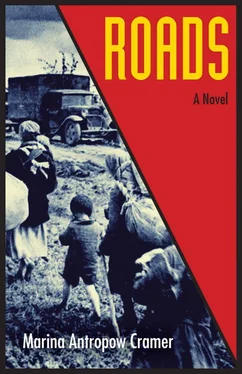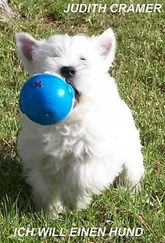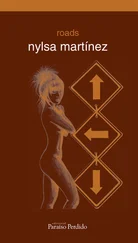“Govern your tongue, woman,” Vadim warned. “What of the citizens’ council, and the Komsomol? Aren’t the young people making sure everyone has their say?”
“ Da, da .” Nastya waved a hand. “Yes, of course. The beets are fresh, sir. I pulled them early this morning,” she addressed a middle-aged man in a summer coat and dusty boots. She brushed a clod of dirt off the vegetables and cradled them in her hands for the customer to see. The man shook his head and moved on.
Vadim, too, was ready to walk on, but something about the woman held him. Was it the strong hands, with flat, stony palms, hands so unlike Zoya’s smooth long-fingered ones? Or the hint of insolence in her knowing eyes? “Listen—what are you called?”
She hesitated. “Nastya,” she finally answered.
“Nastya. I would buy your beets, but I brought no bag to carry them home.”
The woman turned her head to one side. “Masha!” she called, and a child of three years or so stepped out from behind her back. In one swift gesture, Nastya removed the oversized yellow kerchief from the girl’s head, shook it briskly, and wrapped the beets, tying the corners together in a neat package. “Bring it back, if you please, next market day,” she said, pocketing the coins while the child stood in silent acquiescence, doe eyes unblinking in her placid face.
Vadim was halfway down the row of vendors when he stopped, turned, and came back. He liked this woman, her quick thinking, her serious demeanor and sturdy practicality. “How many more do you have at home?” he asked, nodding at little Masha.
“She is my last. I gave my man and two sons to the motherland”—she crossed herself—“and the older daughters all found husbands, thank the Lord. Slava Bogu . Even if one is a cripple and the other a drunkard.”
“Nastya. My wife is sick. She needs someone to help her with the baby until, you know, she gets back on her feet. I’m not a wealthy man, but I can pay you more than you get for your vegetables.”
“How long?”
“I don’t know. Two months, three? She is very weak, and the baby cries…”
“Does she have milk?”
Vadim reddened. “I—I think so. These are women’s matters. You must ask her yourself. I’ll arrange the temporary travel permit. You can bring the little one, too,” he added, regaining his composure.
So Nastya came, leaving Masha in her sister’s care, because a city, no matter how beautiful, was no place to raise a healthy child.
___
Filip thrived under Nastya’s care. From the first day, in spite of his undernourished frailty, she handled the infant fearlessly—not without affection, but with the assurance of a woman with no time to waste.
“ Ai !” Zoya half-rose from her seat at the kitchen table. “You’ll drop him!”
Nastya passed the pale squirming body from one hand to the other, balancing him over the basin while ladling warm water over his head. “I raised six brothers while my mother worked in the fields, then my own five. I never dropped one of them, not that you’d see any damage.”
She placed the now quiet baby on a towel, rolled him gently but firmly from side to side. Like a yeast bun , Zoya thought, but said nothing. In no time at all, the new mother was holding the bundle, deftly diapered and swaddled, in her arms.
“I will bring you milk, and tvorog , farmer cheese, from the country, if I can,” Nastya said, submerging the baby’s spare blanket and tiny shirts under the tepid bathwater. “You can’t feed a baby with smiles. Where is your laundry pot?”
“Behind the stove,” Zoya said, her gaze fixed on her ravenous son. Expressions of tenderness, amazement, and curiosity passed in quick succession over her face, then dissolved into a momentary wince of pain as Filip latched on. Within minutes, they both settled into the rhythm of his sucking, and she was overcome with a hypnotic tiredness, a bone-melting fatigue so insistent she felt her arms relax and her head swirl with fog. I will be the one to drop him , she thought. She tightened her grip and forced herself to focus, watching Nastya rinse a handful of soiled diapers in the last of the bathwater. Humming to herself, Nastya wrung out the diapers and added them to the clothes in the laundry pot, filled it with fresh water, sprinkled in some washing soda, and pushed the vessel to the back of the stove.
“After it has boiled, I can hang the laundry in the courtyard?” Nastya asked, taking the sated infant from his mother and tucking him into his basket. “And you must sleep now, too.”
Zoya allowed herself to be led to bed. “That tune you were humming—what was it? I know it but can’t remember…”
“Just something that popped into my head. My mother used to sing it.” Nastya closed the curtains against the afternoon light.
“Yes… yes.” Zoya drifted off, becoming aware, just before sleep took her, of the words. It was a Christmas hymn, coming to her in the pure sweetness of nuns’ voices, reminding her that, with the birth of her child and slow recovery, she had not been to church in many weeks, and of how much she missed it.
She could not have gone to church, as she well knew, until the requisite forty days had passed after the birth of her child. She was not sure how becoming a mother made her unclean, or why the natural cycles of a woman’s body made her less worthy.
“It has to do with original sin, Zoya Stepanovna,” Nastya reminded her. They walked, Nastya restraining her longer, quicker stride to match Zoya’s slow progress. In the baby carriage, Filip slept, his tiny fists clenched above his head, his face bathed in a dewy sheen of perspiration. Vadim had stayed home, claiming to be suffering from indigestion.
“You mean Adam and Eve and the Garden of Eden?”
“I don’t understand it myself. In the village, we think of the forty-day ceremony as bringing the baby into the fold, for everyone to see.”
“Isn’t that what baptism is for?”
“Baptism makes you a Christian, and it can be done in secret. This tradition is more… public.”
“Jesus spent forty days wandering in the wilderness,” Zoya observed.
“Yes, and Noah floated in his ark for forty days before landing on Mount Ararat,” Nastya added. “But I don’t know what any of it has to do with the birth of a child.”
They fell silent, each keenly aware of the precarious status of their religious observances. There was no need to talk about the escalating church and monastery closings, or the diminishing number of priests still able to serve the remaining believers.
“Sit here a moment.” Nastya indicated the wide limestone church steps. “I will have them tell Father Yefim you have come za molitvoy— to receive a prayer for your son.”
Zoya sat, choosing the end of the step shaded by a spreading acacia tree. The walk had wearied her. She closed her eyes against the wild array of colors shifting and swimming around her, not even able to remember what all these familiar flowers were called. Filip was still sleeping, with the barest shadow of a smile hovering around his lips. Watching him, she suddenly felt completely alone, as if they had all disappeared—her father, Vadim, Nastya—and she was left with the burden of survival, with this young life entrusted to her keeping. What if it happened? What then?
It was no idle question. People were here one day and gone the next. Would these prayers protect her then? Who could know? Zoya leaned her head against the baby carriage and surrendered to panic, its grip sending shivers down her arms and legs in spite of the warmth of the midmorning sun.
Filip woke up and wailed just as Nastya came out to tell her they were ready for the ceremony. Standing at the front of the sanctuary, Father Yefim beckoned for her to approach. He took the child from her and held him up, his firm hands easily encircling the little body. Zoya noticed the frayed edge of the priest’s cassock, the shiny, worn patches on his brocaded vestments, then forgot everything when her son disappeared through the altar gates, out of her sight. She knew it was a privilege given only to boys, that girl babies, while receiving the same prayers, were forbidden to pass the gates. Minutes later Filip, still crying, was back in her arms, but the separation, however brief, had seemed unbearable.
Читать дальше











